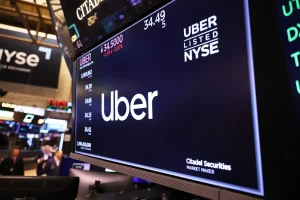A specialist employment lawyer has praised a recent judgement at the Employment Appeal Tribunal (EAT) which upheld the decision that UBER drivers are workers and are therefore entitled to increased rights including holiday pay and a national minimum wage.
Kate Gardner, a Partner with national law firm Clarke Willmott LLP, says that this type of worker is not truly independent and should be protected by employment laws in the UK relating to pay and benefits.
Last year the Employment Tribunal (ET) decided that taxi firm UBER’s business model and their contractual documentation was effectively a “sham” as it did not reflect the reality of the working arrangements. This came after several of its drivers brought ET claims for failure to pay national minimum wage and provide annual leave and holiday pay.
UBER appealed against the decision and the EAT have confirmed their agreement with the Tribunal’s finding that there was sufficient control by UBER over the drivers.
Kate Gardner said: “Essentially as soon as an UBER driver logged into the UBER app when they were working they were allocated worker status thus giving them rights under the National Minimum Wage and Working Time Regulations.
“When a driver logs in they will receive a passenger request and have 10 seconds to accept that booking through the app. Failing this, UBER assumes the driver is unavailable and locates another. If the driver fails to accept a booking, warning messages are generated which can lead to the driver’s access to the app being suspended or blocked which prevents the driver working.
“This arrangement, in the EAT’s view, shows substantial and sufficient control to warrant workers status being allocated to those drivers. The labels and terms used in the written contract were not the truthful situation, they were not truly self-employed or running their own business at any time.”
UBER argued that all their drivers are self-employed and any contract for the taxi service is between the driver and the passenger, therefore each driver is running their own small business linked by a common platform.
This notion was firmly rejected by the EAT. They confirmed that in a situation where a court or tribunal considers contractual documentation does not reflect the reality of an arrangement, then the court is entitled to disregard the terms and labels used in those written agreements and establish the true agreement.
UBER argued that drivers were at liberty to take on or refuse work and therefore there was no obligation on them and they were not at UBER’s disposal.
However, the EAT concluded that on the evidence, drivers were expected to accept at least 80% of trip request and that this very high percentage justified the Tribunal’s conclusion that in reality drivers were working at UBER’s disposal and within their full control; they were not self-employed entrepreneurs, they were truly ‘workers’ and need protective rights.
Kate continued: “This ruling has been followed by several other recent Tribunal judgments, in particular concerning cycle couriers, again who have been required to sign up to a contract as a self-employed contractor when in reality they are fully controlled by the company.
“This decision represents a trend of the generation of travel on this issue, which is that dependent individuals working in big economy businesses, may well be workers rather than genuinely self-employed. The next step is waiting to see whether the Government will act on this raft of decisions and consult on the recommendations that this area is more closely regulated.”
Clarke Willmott LLP was established in 1888 and has offices in Birmingham, Bristol, Cardiff, London, Manchester, Southampton and Taunton.
(Source: Clarke Willmott LLP)




















